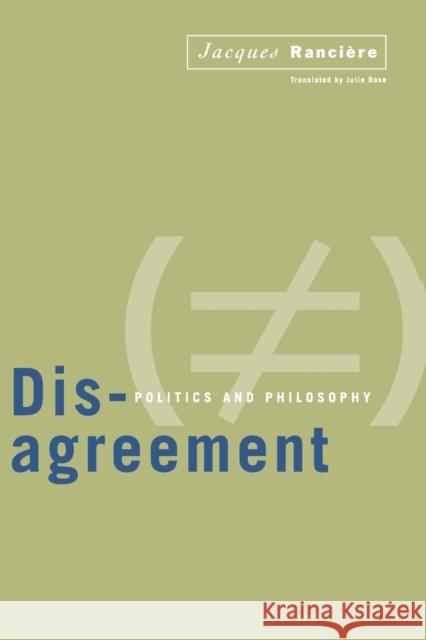Disagreement: Politics And Philosophy » książka
Disagreement: Politics And Philosophy
ISBN-13: 9780816628452 / Miękka / 2004 / 168 str.
-Is there any such thing as political philosophy?- So begins this provocative book by one of the foremost figures in Continental thought. Here, Jacques Ranciere brings a new and highly useful set of terms to the vexed debate about political effectiveness and -the end of politics.-What precisely is at stake in the relationship between -philosophy- and the adjective -political-? In Disagreement, Ranciere explores the apparent contradiction between these terms and reveals the uneasy meaning of their union in the phrase -political philosophy---a juncture related to age-old attempts in philosophy to answer Plato's devaluing of politics as a -democratic egalitarian- process.According to Ranciere, the phrase also expresses the paradox of politics itself: the absence of a proper foundation. Politics, he argues, begins when the -demos- (the -excessive- or unrepresented part of society) seeks to disrupt the order of domination and distribution of goods -naturalized- by police and legal institutions. In addition, the notion of -equality- operates as a game of contestation that constantly substitutes litigation for political action and community. This game, Ranciere maintains, operates by a primary logic of -misunderstanding.- In turn, political philosophy has always tried to substitute the -politics of truth- for the politics of appearances.Disagreement investigates the various transformations of this regime of -truth- and their effects on practical politics. Ranciere then distinguishes what we mean by -democracy- from the practices of a consensual system in order to unravel the ramifications of the fashionable phrase -the end of politics.- His conclusions will be of interest to readers concerned with political questions from the broadest to the most specific and local.











